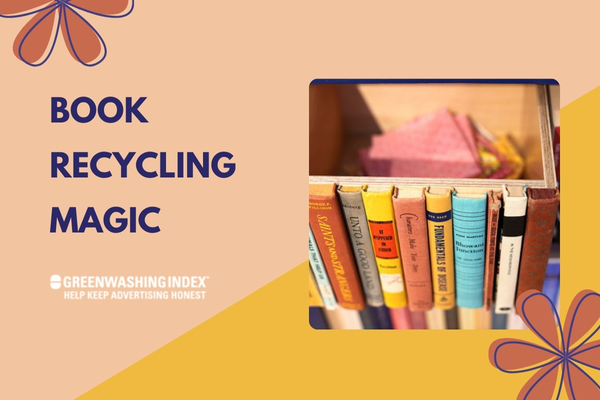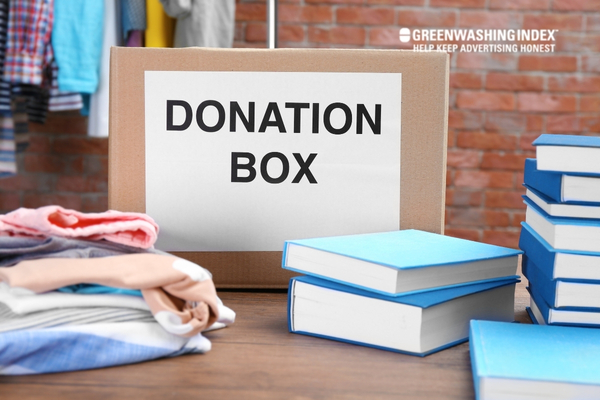

Have you ever wondered what to do with all those old books gathering dust on your shelf? Book recycling is not just about being kind to our planet; it’s a gateway to unlimited creativity! Picture this: Your favorite story turned into a piece of art or an ancient textbook rebirthed as a quirky planter. The journey from worn-out pages to vibrant new creations begins right here.
What if I told you that those stacks of worn paperbacks and dog-eared novels taking up space in your home could be the spark for something amazing? With some simple and enjoyable ideas, you can transform them into unique items. These old reads can serve fresh purposes, cutting down waste and giving extra joy in unexpected forms. You don’t need magic—just a bit of innovative thinking!
When we hold on to a well-loved book, it’s like holding onto a small piece of history. But what happens when we run out of room on our shelves or the pages grow old and worn? That’s where book recycling comes in.

Let me tell you about book recycling and why it’s something we should all think about. When I say book recycling, I mean finding new ways to use old books that we can’t read anymore. Maybe they are torn, or perhaps we’ve just outgrown them. Now, instead of throwing them away, there are smarter choices we can make.
Why bother with book recycling? First off, it helps our planet. Lots of trees are cut down to make paper for books. When we recycle books, we use less new paper and save these trees. It’s a part of being friendly to the environment or what some folks call sustainable reading. It also means fewer books end up in landfills where they take up space and can harm the earth as they slowly break down.
Another big plus is that it clears up space at home. Instead of having piles of old books collecting dust on shelves or in boxes, you can turn them into something cool or give them a new life elsewhere.
Imagine an old book’s journey—it starts with someone loving it and reading it over and over again until one day, it’s not needed anymore. That’s where innovative recycling ideas jump into action.
An old read doesn’t have to be the end; it could be just the start! For instance:
This is what makes upcycling old books so much fun—turning an item far past its prime back into treasure once again by giving it a completely new purpose! This journey brings together creativity and caring for our world under one umbrella—a colorful mix that brings out smiles while also being kind to our planet!
Also Read: Metal Recycling: Your Guide to Sustainable Disposal
Recycling books is not just about being good for our planet. It’s about sharing stories, helping others, and finding new ways to enjoy old favorites. When we talk about book recycling, it doesn’t mean breaking them down for paper. It can also mean creative reuse of books that gives them new life and purpose.
Imagine giving your books a second chance at telling their tales. When you donate your books, you share the joy of reading with someone else. It’s like handing over a piece of treasure to another person who might find their next favorite story among your old reads.
Donating not only clears out space on your own bookshelf but also brings warmth into the lives of others.
Trading lets you recycle your read but still leaves you with something new (to you) in return! It’s eco-friendly because no new resources are needed—just the love of reading passing from one person to another.
Here’s how:
By trading, we keep stories moving and contribute sustainably by saving trees and reducing waste.
Also Read: Ink Cartridge Recycling: Your Ultimate Green Guide
Selling helps clear out space while offering others a chance at affordable reading material—and puts some extra cash in your wallet!
Here’s where you can sell:
Offline:
Online:
Remember, when selling:
We each have the power through simple actions like these—to encourage sustainable reading habits that respect our world while nurturing our minds and souls!
Have you ever thought about turning a book that’s just sitting there on your shelf into something brand new? Well, book recycling is not just about getting rid of old books; it’s also about giving them a second life as something beautiful or useful. Let’s dive into how you can creatively use books in art projects:
Each idea keeps your old reads from being thrown away and turns them into charming décor pieces for your home. And the best part? They tell a story beyond the written words inside.
Also Read: CRT Monitors Recycling Guide: Save Earth, Start Today!
Recycling rules differ from one place to another, which makes understanding your local curbside program really important before tossing books in the recycle bin:
By knowing these rules, you’ll make sure that your books are recycled properly without causing trouble at the recycling center.
When my usual recycler doesn’t take books, I look for someone who specializes in book materials:
These specialized recyclers often know exactly how to manage old books, so they’re handled in an eco-friendly way without wasting any materials that can be saved by upcycling old books into new treasures!
Also Read: Computer Recycling: Green Guide to Old Tech Disposal
One thing I often think about is what to do with old books that are just sitting on my shelf, collecting dust. And here’s a thought that brings a smile to my face – book donations. This kind of book recycling isn’t just about being tidy; it’s also about sharing stories and knowledge with others who might not have easy access to books.

When I look into the process of donating books, I see how simple acts can spark big changes in someone else’s life. Here’s what I usually do:
Remember, though, it’s not just handing over a bunch of used paperbacks — when you donate a book, you pass along knowledge, perhaps an adventure, certainly a physical piece of yourself that held feelings and thoughts as its pages turned in your hands once upon a time.
To me, book recycling by way of donations is more than eco-friendly – it’s about lighting up minds while taking care of our planet.
No, most curbside recycling programs don’t take hardcover books because of the glue and binding. It’s best to remove the cover and recycle only the pages if allowed.
To dispose of old encyclopedias, consider donating them, using them in creative reuse projects, or contacting a recycling center that accepts mixed paper products.
Yes! Always check to see if your book is a collector’s item. Vintage or rare books could be worth selling rather than recycling — try a used bookstore or an online marketplace.
As I’ve explored, book recycling offers a world full of possibilities. It’s not just about being kind to our planet, but it’s also about sharing stories and sparking creativity. Through donating, trading, selling, or even repurposing old reads into art, every one of us can contribute to sustainable reading practices that benefit our communities and environment.
Next time you eye that dusty shelf with books you no longer read, remember the opportunities for their next chapter – a journey from your hands to furthering someone else’s imagination or becoming a part of something new through eco-friendly book projects.

Don't let aphids, slugs, and caterpillars ruin another plant. Take back control with simple, natural methods that actually work.